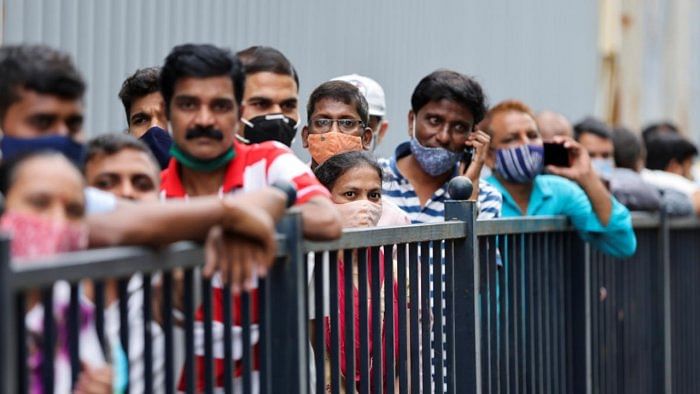
An expert panel under the National Institute of Disaster Management (NIDM), the Ministry of Home Affairs (MHA), has warned that the third wave of Covid-19 may peak in October.
In its recent report to Prime Minister's Office (PMO), the committee has sought better medical preparedness for children who might be at similar risk as adults, according to a report by The Times of India.
The committee has noted that “paediatric facilities — doctors, staff, equipment like ventilators, ambulances, etc. are nowhere close to what may be required in case a large number of children become infected”. Experts have expressed concern about 82 per cent shortage of paediatricians in primary health centres and 63 per cent vacancies in community health centres (the data cited from a parliamentary standing committee).
“The situation is already dire, and might worsen due to lack of adherence to Covid Appropriate Behaviour (CAB), insufficient medical facilities and lagging vaccination,” the report said.
Calling for prioritising vaccination among children with co-morbidities and a special focus on those with disabilities, the experts said that even with “strict interventions”, the peak of the third wave is expected to arrive by late October.
Experts, in the report, highlighted the vulnerability of children as they haven’t been vaccinated. However, most experts said they are not prone to severe infections, even though they can pass the virus to others.
The report pointed out how during the second wave, about 60 to 70 per cent of children hospitalised due to Covid had comorbidities and their low immunity was the primary cause behind many developing MIS-C (Multi-system Inflammatory Syndrome), a “rare but serious condition” developed post-Covid recovery. Earlier estimates have suggested that the third wave may prove to be less severe than the second.
The committee has recommended “a holistic home care model, immediate increase in paediatric medical capacities and prioritising mental health issues among children”.
They have also called for “a scientific approach coupled with focused public spending” to deal with pandemic management. “There is a huge gap between urban and rural India in terms of awareness, digitisation and medical facilities. It seems like the pandemic outbreak has only exacerbated social inequities and highlighted shortcomings of our society,” it said.